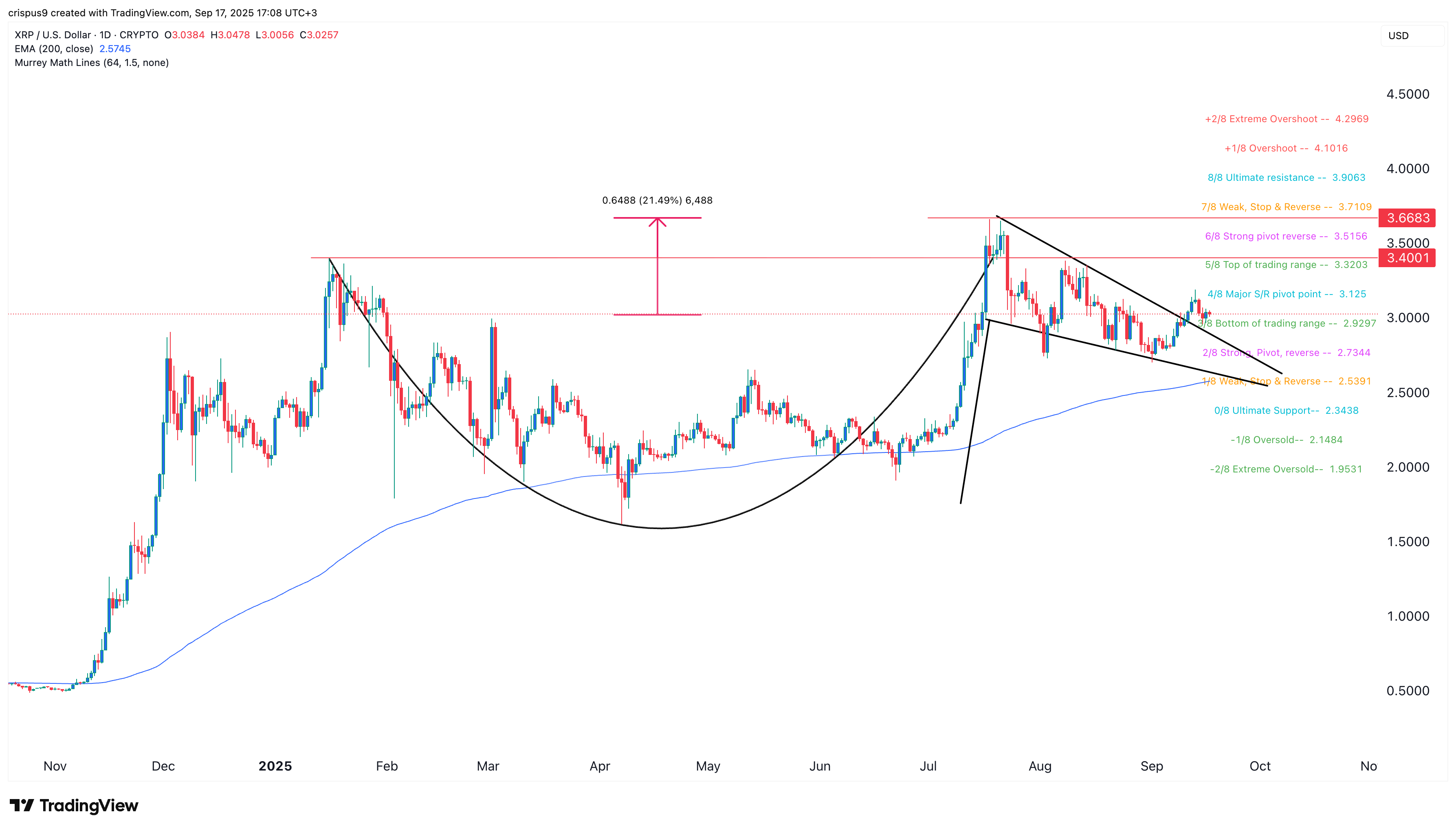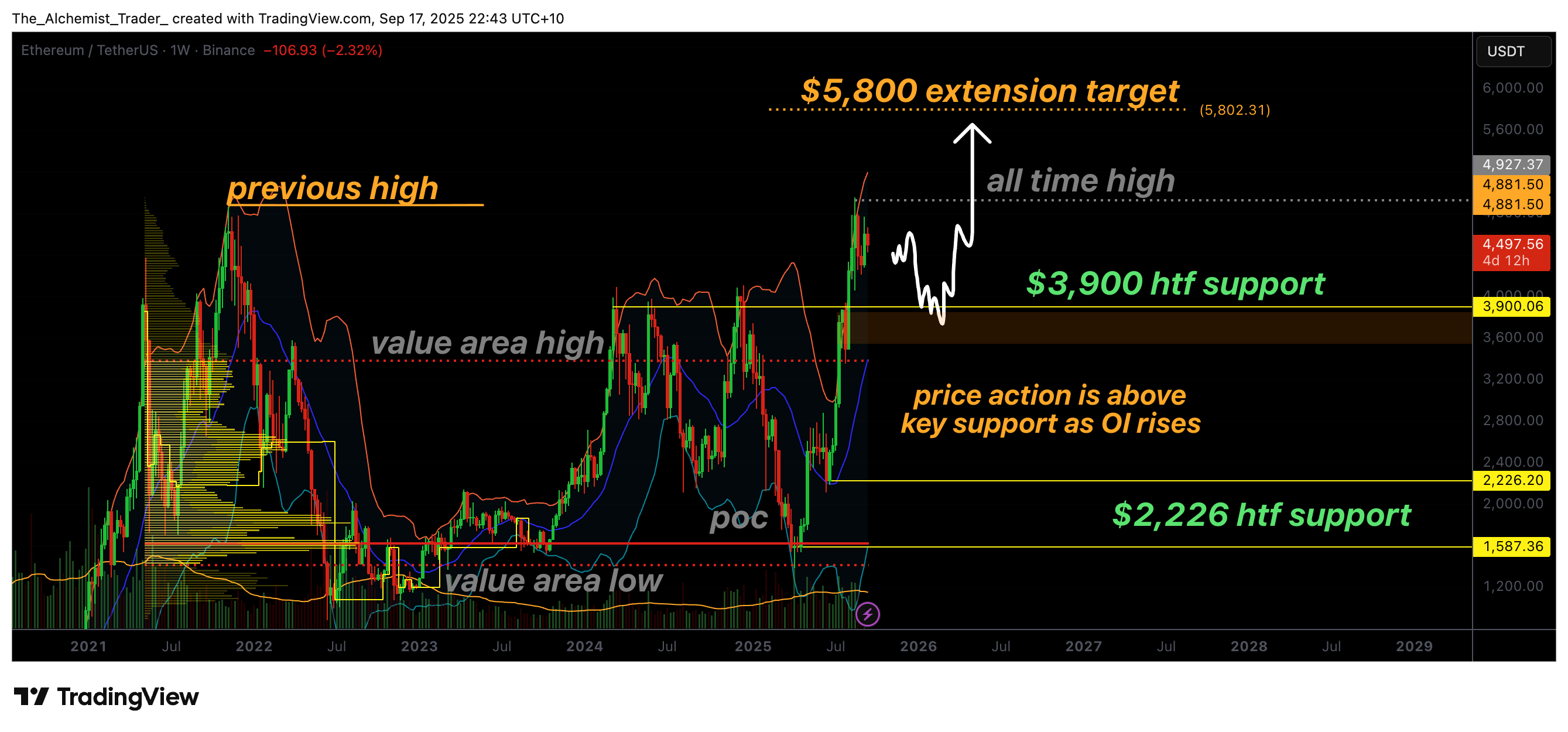How the SEC’s revised lawsuit against Binance could impact crypto

How might the SEC’s revised lawsuit against Binance, excluding the need to determine tokens as securities, change the regulatory approach towards digital assets?
The U.S. Securities and Exchange Commission has taken a new turn in its legal proceedings against Binance and its affiliates.
A recent court document dated July 30 indicates that the SEC plans to request permission to revise its lawsuit, specifically the sections related to ‘Third Party Crypto Asset Securities.’
This proposed amendment is crucial as it indicates the SEC’s move away from requiring the court to determine if the tokens mentioned in the Binance lawsuit qualify as securities.
Initially, in its June 2023 lawsuit, the SEC categorized approximately 68 tokens as securities, sparking widespread debate.
The tokens involved include major players like Solana (SOL), Cardano (ADA), Polygon (MATIC), Filecoin (FIL), Cosmos (ATOM), The Sandbox (SAND), Decentraland (MANA), Algorand (ALGO), Axie Infinity (AXS), and Coti (COTI).
The conversation around these third-party tokens intensified during a July 9 hearing following a misunderstanding of Judge Amy Berman Jackson’s June 28 decision on a dismissal motion filed by Binance, which the defense misunderstood as excluding third-party tokens from the case — a point the judge later corrected.
The document from July 30 was a mandated joint statement by both parties clarifying their stances on the future conduct of the case, awaiting the judge’s decision on the involvement of third-party tokens in the ongoing lawsuit.
Details on the SEC’s future actions remain undisclosed, leading the defense to request viewing the amended complaint prior to proceeding with discovery.
So, what does all this mean for the crypto world? Let’s dive deeper and understand the implications of these latest actions by the SEC.
SEC’s changing stance
For years, the SEC held a firm stance that every cryptocurrency, except Bitcoin (BTC), was a security. This meant that the SEC believed these digital assets were like stocks, requiring strict regulations and oversight.
SEC’s rigorous stance caused a lot of friction in the crypto world, as many argued that cryptocurrencies should be treated differently.
Amid this, one critical shift occurred under strong political and external pressure. On July 23, the SEC finally gave the green light to spot Ethereum (ETH) ETFs, allowing them to go live.
This was a huge milestone because it essentially meant that Ethereum was now being treated as a commodity, much like Bitcoin.
Despite this newfound change, the SEC’s approach in the Binance case has been perplexing. Ripple’s (XRP) CEO, Brad Garlinghouse, has called out the SEC’s actions as “hypocritical.”
In a tweet, Garlinghouse expressed his frustration: “More evidence of SEC hypocrisy. Chair Gensler testifies the rules are clear, yet his SEC can’t figure them out and applies them haphazardly, festering more industry confusion.”
This isn’t the first time Garlinghouse has clashed with the SEC. Ripple has been embroiled in a legal battle with the SEC since 2020 when the agency filed a lawsuit against Ripple for allegedly raising funds by selling XRP without registering it as a security.
The Ripple vs SEC case is closely watched because it could set a precedent for how cryptocurrencies can be regulated in the future.
Judge Analisa Torres ruled last July that XRP sales to retail investors on exchanges did not constitute investment contracts, which was seen as a setback for the SEC’s jurisdiction.
Garlinghouse remains optimistic about a resolution, expecting it soon, but he continues to criticize the SEC’s approach.
Experts weigh in
The recent actions by the SEC have sparked a flurry of reactions from experts and legal professionals. Many believe that the SEC’s latest move in the Binance case is a strategic decision rather than a shift in policy.
Jake Chervinsky, a prominent lawyer, suggests that the SEC’s decision not to pursue discovery on several tokens in the Binance case is likely a litigation tactic.
According to Chervinsky, the SEC still calls these tokens securities in other cases, indicating that the recent move is specific to the Binance lawsuit and not a broad policy shift.
Meanwhile, Justin Slaughter, a former senior adviser at the SEC, believes people are overreading the SEC’s actions. He points out that the SEC is not abandoning its position that tokens like Solana are securities.
Amid this, John E. Deaton, a well-known lawyer and Senate candidate, argues that the SEC’s actions have caused financial harm to retail investors.
Deaton believes that the SEC’s recent move in the Binance case is further evidence of its strategic litigation tactics rather than a genuine shift in regulatory policy.
He has also called for SEC Chair Gary Gensler to resign, citing the damage caused by the SEC’s inconsistent enforcement.
Stuart Alderoty, the chief legal officer at Ripple, also highlighted the inconsistency in the SEC’s regulatory approach. He notes that while the SEC backed off its claims that certain tokens on Binance are securities, it continues to pursue similar claims in other cases, such as against Coinbase.
Alderoty argues that this selective enforcement creates confusion and undermines effective regulation.
Adam Cochran, another industry expert, criticizes the SEC’s overall conduct, pointing to other cases where the SEC’s tactics have been questioned. He suggests that the SEC’s current approach is problematic and needs to be re-evaluated.
What’s next?
As the presidential elections in November 2024 approach, Republicans are using crypto as a shield to fight Democrats, creating a heated environment where regulatory actions by the SEC are under intense scrutiny.
Tyler Winklevoss, the co-founder of the crypto exchange Gemini, recently expressed his gratitude towards former President Donald Trump for what he perceived as a shift in the SEC’s stance against Binance. Although there’s no concrete evidence that Trump directly influenced this shift.
Meanwhile, Trump spoke at the Bitcoin Conference in Nashville between July 25-27, where he revealed plans to replace the current SEC chairman, Gary Gensler.
Trump’s sudden announcement was met with enthusiastic applause from the audience, reflecting the crypto community’s frustration with the SEC’s approach.
Throughout the years, the SEC has been criticized for targeting crypto firms and for not providing the transparency and clarity needed for the industry to grow amid regulatory challenges.
Hence, the collective frustration towards the SEC and Gensler has created a unique situation, leading to an unusual alliance where crypto advocates and Republican leaders unite in their criticism of the SEC and, indirectly, the Democrats.
As the elections draw closer, this scenario is setting the stage for potential changes in how the industry is regulated, depending on the election outcomes.




